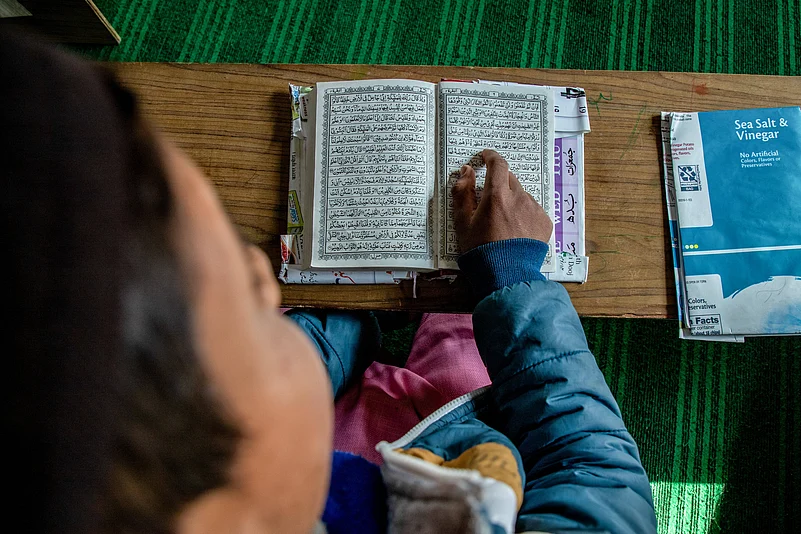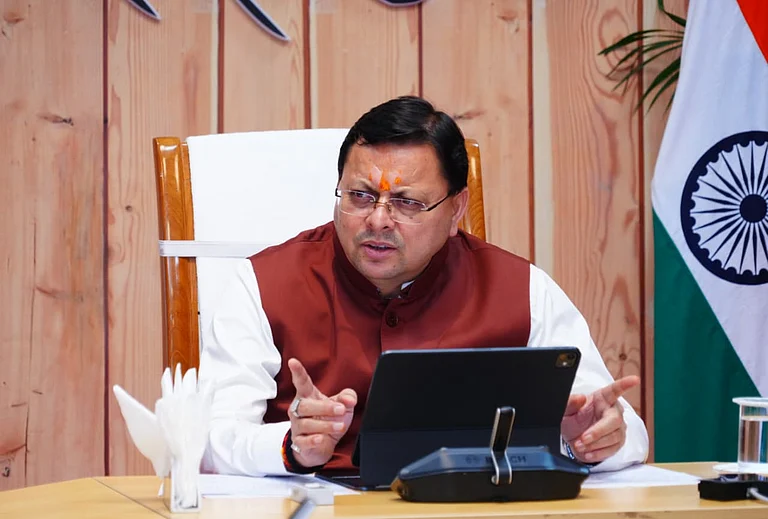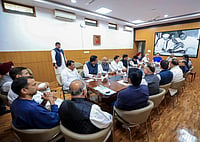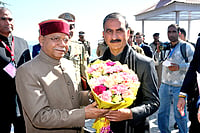
The state has abolished the Madarsa Board and will replace it with a new authority to regulate minority educational institutions.
With this step, Uttarakhand becomes the first state to introduce extensive reforms in minority education.
Dhumi terms the move as historic, aimed at making the state's education system transparent, accountable, and quality-driven
After implementing the Uniform Civil Code in 2024, Uttarakhand, the BJP-ruled state, moved in 2025 to abolish the Madrasa Education Board, aiming for another first in educational reforms.
The hill state, where Muslims constitute 13.95 percent of the population, is advancing this initiative to bring minority educational institutions under a new regulated framework.
This regulatory step follows the passage of the Minority Education Bill 2025, which now requires all minority educational institutions to obtain approval from a new Uttarakhand Minority Education body created by law and to be linked with the Uttarakhand Board of School Education.
Uttarakhand Governor Lt Gen (Retd) Gurmit Singh has given his assent to the legislation, clearing the decks for the government to implement ‘uniform reforms’ in the existing education system.
According to the new framework outlined by the state government, all minority schools will be required to adopt the National Curriculum Framework (NCF) from the next academic session in July 2026, alongside the New Education Policy (NEP) 2020.
A senior Uttarakhand government official in the state education department outlines, “Under the new curriculum, minority institutions will teach mainstream subjects—science, mathematics, and social sciences. Religious education will also remain part of the program.”
In his post on ‘X,’ Chief Minister Pushkar Singh Dhami wrote, “Heartfelt thanks to the Hon’ble Governor Lt Gen Gurmit Singh ji (Retd.) for approving the Minority Education Bill-2025! With the governor’s approval, the path for this bill to become law has now been paved.
In line with this approach, he described the decision as a historic step towards creating a uniform and modern education system in the state. The Chief Minister claimed that the government’s goal is to ensure that “every child in the state—regardless of class or community—progresses with equal education and equal opportunities.”
Extending beyond madrasas, the reform will create a single unified State Authority for all minority education, covering schools and colleges run by Muslims, Sikhs, Jains, Christians, Buddhists, and Parsis. This broadens the earlier policy focus that had largely centered on madrasas.
With the implementation of the new law, as Chief Minister Dhami addressed in Dehradun, the Uttarakhand Madrasa Education Board will become redundant and be formally dissolved. He added that this transition aims to make the state’s education system more transparent, accountable, and quality-driven.
However, this move has been met with resistance from some minority groups, who have accused the Dhami government of implementing its Hindutva agenda and interfering with religious education, targeting the state’s minorities.
Mohammad Shah Nazar, a young Muslim leader and spokesman of Jamiat Ulama-e-Hind, Uttarakhand, says, “The proposed change tends to dilute and override the spirit of the constitution (Article 30). All minorities, whether based on religion or language, have the right to set up and manage their own educational institutions.”
He feels that government actions like imposing affiliation, curricular constraints, or governance changes will create serious legal and administrative complications. These issues will more directly affect students’ futures and the functioning of minority educational institutions in Uttarakhand.
The effort to regulate minority education institutions began in 2012, during B. C. Khandoori's (BJP) tenure, with the formation of the Uttarakhand Madrasa Shiksha Parishad (Madrasa Education Council).
In 2016, the Congress government led by Harish Rawat enacted the Uttarakhand Madrasa Education Board Act to organize madrasa education and integrate Islamic studies with modern subjects.
The Uttarakhand Madrasa Shiksha Parishad (UMEB) was created to grant registrations and recognitions. It was responsible for framing syllabi, conducting examinations, and issuing certificates to madrasa students.
Subsequently, the BJP government led by Trivendra Singh Rawat, in 2019, framed rules under the 2016 Act, specifically the Uttarakhand Non-Government Arabic and Persian Madrasa Recognition Regulation.
“The move enabled the inclusion of modern subjects such as science, mathematics, and social studies, alongside religious teaching,” Shah Nazar recalled.
In 2023-24, the Uttarakhand High Court heard a case about recognition for madrasa certificates. The state government was given six months to create a policy to address risks facing students whose madrasas had not met recognition norms.
In August 2025, while disposing of the case, the High Court instructed the Secretary, Minorities Welfare, Uttarakhand, to decide on the petitioner’s representation dated 07.08.2025 as per law, within four months.
After the High Court's directive in August 2025, the state government passed the Minority Education Institutions Bill 2025, abolishing the Madrassa Education Board established under the 2016 Act.
Shah Nazar says that after the law comes into force, the future of 87,000 students who passed the Uttarakhand Madrasa Board exam will be uncertain. The same uncertainty applies to the 60 to 70 Madrasas granted recognition during 2025. The Act does not address this issue.
Nevertheless, the government maintains that the students from minority institutions will study the same syllabus and receive certificates equivalent to state-board qualifications. It also extends state benefits beyond madrasas to all minority institutions.
The chairman of the Uttarakhand Madrasa Board, Mufti Shamoon Qasmi—a BJP leader—has backed the government move, describing it as progress of reforms to integrate madrasa students into the mainstream.


























